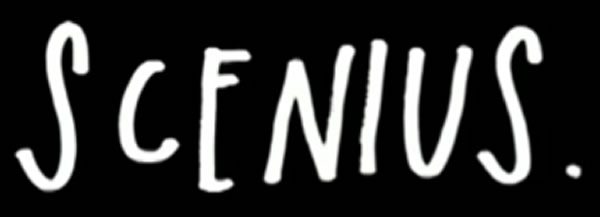
Here’s a word that you should add to your vocabulary: Scenius. It was coined by musician, music producer, and visual artist Brian Eno to describe the extreme creativity that groups, places, or “scenes” can generate.
Eno came up with the term as a way of countering the pervasive myth of the Lone Genius — the idea that innovation comes from a small, select set of Chosen Ones.
Here’s an expanded definition, courtesy of Eno:
Creative Commons photo by Algemene Vereniging Radio Omroep (AVRO).
Tap the image to see its source.
“Scenius stands for the intelligence and the intuition of a whole cultural scene. It is the communal form of the concept of the genius.”
…I thought that originally those few individuals who’d survived in history – in the sort-of “Great Man” theory of history – they were called “geniuses”. But what I thought was interesting was the fact that they all came out of a scene that was very fertile and very intelligent.
So I came up with this word “scenius” – and scenius is the intelligence of a whole… operation or group of people. And I think that’s a more useful way to think about culture, actually. I think that – let’s forget the idea of “genius” for a little while, let’s think about the whole ecology of ideas that give rise to good new thoughts and good new work.”
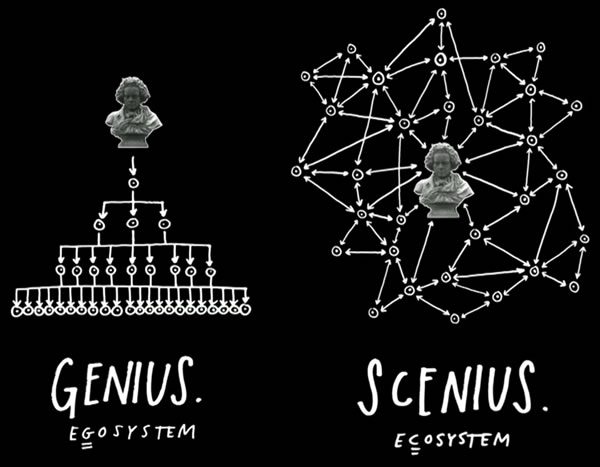
“Genius/EGOsystem vs. Scienus/ECOsystem” graphic by Austin Kleon.
Here are some examples of scenius, where the collective smarts, creativity, and passion of a group of people coming together to do great things is greater than the sum of its parts:
- The Lunar Society of Birmingham: a dinner club run between 1765 and 1813 in Birmingham, England, and attended by industrialists, scientists, and thinkers who changed science and engineering forever. Their regulars included Boulton and Watt (steam engines and their applications to manufacturing), Erasmus Darwin (biology, inventions, and grandfather of Charles Darwin), Keir (industrialist, chemistry, inventions), Priestly (chemistry, philosophy), Small (Thomas Jefferson’s professor at the College of William and Mary), Stokes and Withering (early heart medicine), Wedgewood (industrialized pottery, pretty much invented modern marketing, including the concepts of direct mail, money-back guarantees, self-service, free delivery, buy one get one free, and illustrated catalogs), Whitehurst (geology).
- The Sex Pistols’ 1976 gig. It was attended by a mere 42 people, but those people went on to revolutionize music through their work in British alt-rock: Howard Devoto and Pete Shelley (The Buzzcocks) organized, Tom Wilson and Martin Hannett (Factory Records and the Hacienda), Morrissey, Mark E. Smith (The Fall), Paul Morley (NME magazine, Frankie Goes to Hollywood, The Art of Noise), Mick Hucknall (Simply Red), and Ian Curtis, Bernard Sumner, and Peter Hook (Joy Division, New Order).
- Silicon Valley: Your iPhone and Android are direct descendants of the scenius that was born when the “Traitorous Eight” left Shockley Semiconductor to form their own company, Fairchild, and the “Fairchildren” who then left Fairchild to form their own companies, and so on, creating a cross-pollenating scene that we now know as “The Valley”.

Global Entrepreneurship Week Tampa’s Happy Hour + Florida Innovation Discussion, November 12, 2018.
Kevin Kelly, founding editor of Wired and former editor and publisher of the Whole Earth Review, wrote that the geography of scenius is nurtured by several factors:
- Mutual appreciation — Risky moves are applauded by the group, subtlety is appreciated, and friendly competition goads the shy. Scenius can be thought of as the best of peer pressure.
- Rapid exchange of tools and techniques — As soon as something is invented, it is flaunted and then shared. Ideas flow quickly because they are flowing inside a common language and sensibility.
- Network effects of success — When a record is broken, a hit happens, or breakthrough erupts, the success is claimed by the entire scene. This empowers the scene to further success.
- Local tolerance for the novelties — The local “outside” does not push back too hard against the transgressions of the scene. The renegades and mavericks are protected by this buffer zone.
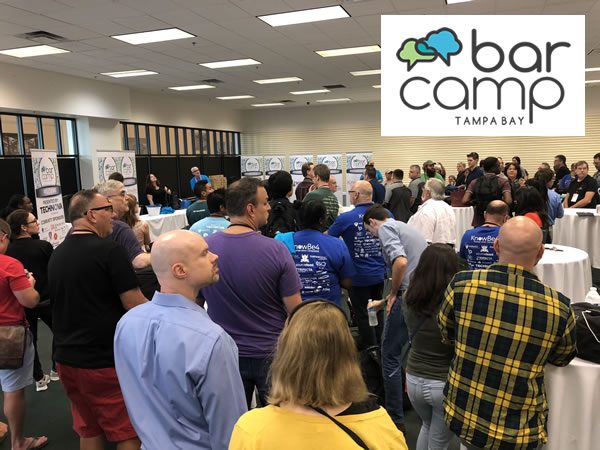
BarCamp Tampa Bay, November 10, 2018.
Here’s what Austin Kleon, a writer and artist whose ideas have been adopted by the tech community, has to say about scenius:
Under this model, great ideas are often birthed by a group of creative individuals—artists, curators, thinkers, theorists, and other tastemakers—who make up an “ecology of talent.” If you look back closely at history, many of the people who we think of as lone geniuses were actually part of “a whole scene of people who were supporting each other, looking at each other’s work, copying from each other, stealing ideas, and contributing ideas.” Scenius doesn’t take away from the achievements of those great individuals: it just acknowledges that good work isn’t created in a vacuum, and that creativity is always, in some sense, a collaboration, the result of a mind connected to other minds.
What I love about the idea of scenius is that it makes room in the story of creativity for the rest of us: the people who don’t consider ourselves geniuses. Being a valuable part of a scenius is not necessarily about how smart or talented you are, but about what you have to contribute—the ideas you share, the quality of the connections you make, and the conversations you start. If we forget about genius and think more about how we can nurture and contribute to a scenius, we can adjust our own expectations and the expectations of the worlds we want to accept us. We can stop asking what others can do for us, and start asking what we can do for others.
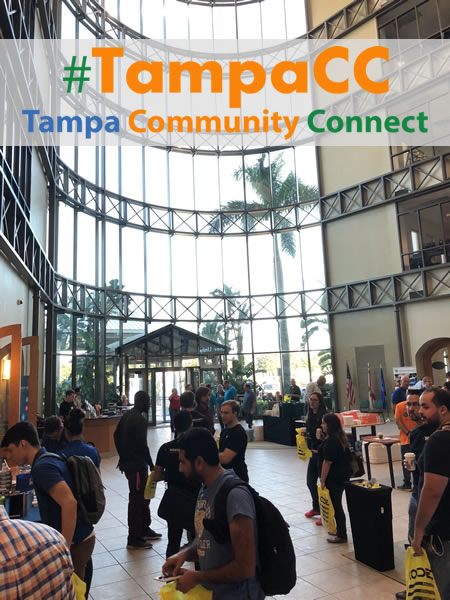
Tampa Community Connect, October 20, 2018.
The time is ripe to build Tampa Bay’s tech scenius. Consider these recent developments in the area…
- Massive $3 billion development will accelerate Tampa, Florida’s growth (April 2017)
- Why Have So Many Millennials Become Tampreneurs? (April 2017)
- Tampa Ranks as Top Spot Where Millennials are Moving (June 2017)
- 5 Reasons Why People Are Moving to Tampa Bay Area (December 2017)
- Jeff Vinik hires Chicago startup specialist Lakshmi Shenoy to run Tampa innovation hub at Channelside Bay Plaza (December 2017)
- Tampa Bay area’s population projected to grow to 3.1 million this year (February 2018)
- Evidence of Tampa Bay Area’s growing tech hub: Clearwater counts 50 tech companies, 2K jobs (March 2018)
- Global study shows economic growth in Tampa Bay (June 2018)
- Tampa metro’s job growth is second highest in the state (June 2018)
- Young talent helps Tampa Bay stand out in tech, new group says (August 2018)
- David Straz unveils job growth strategy for Tampa (October 2018)
- Tampa Bay looking to brand itself as technology hub of the state, Southeast (October 2018)
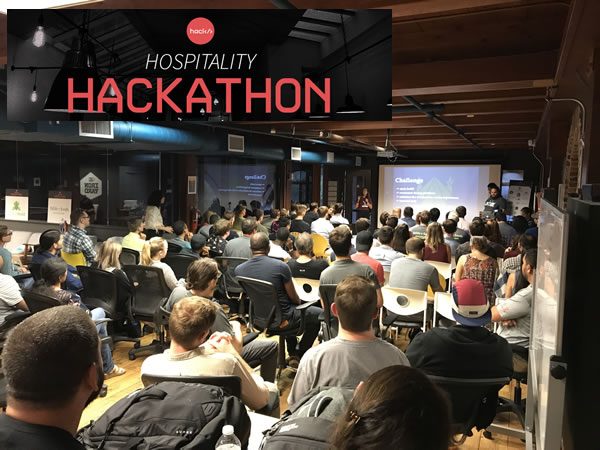
hack</hospitality> Hackathon, August 2017.
Over the past little while, the elements of an interesting, vital technology scene have been gathering in Tampa Bay and the surrounding area (I like to think of Tampa Bay as the western end of the “Orlampa” corridor, with Orlando — who have a lively tech community of their own — at the eastern end). This scene will be boosted by the arrival of that startup hub and gathering place Embarc Collective in March:
Click the image to see it at full size.
Click the image to see it at full size.
Click the image to see it at full size.
While the elements of scenius are in place for Tampa Bay’s tech scene, there’s still some way to go before Tampa can match places like Nashville — whose tech scene is bigger than you might think — never mind places like Austin, Charlotte, Indianapolis, and Raleigh.
The success or failure of Tampa’s tech scenius depends on us, the Tampeños who work in tech, creative, and related industries.
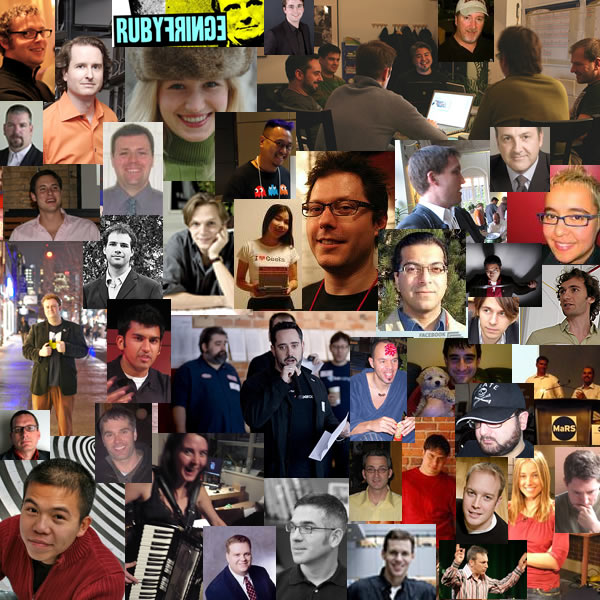 I’m originally from Toronto. While it has one of the hottest tech scenes in North America today, it wasn’t that way 15 years ago. While the city did launch some initiatives to change this, what truly made the difference was Toronto’s own tech community stepping up and organizing. We held events of all sizes, from regular meetups and user group meetings at pubs and lecture halls to independent conferences like Mesh, RubyFringe and FutureRuby to tech “camp” events to big corporate gatherings put on by the likes of the Canadian subsidiaries of IBM and Microsoft. We built places to get together, from hackerspaces such as Hacklab and Site3 coLaboratory to the MaRS Centre. In my work as a developer evangelist for Microsoft, I’ve met many students at Toronto’s fine universities and colleges, and they’re eager to crank out the ‘wares, both hard and soft, and they’re bright as all get-out. We built a great community bound together by cooperation, a strong social media scene and good old-fashioned face-to-face meetings. We got stuff done, and the stuff we did traveled far and wide. We built Toronto’s tech scenius, and it put the city on the map.
I’m originally from Toronto. While it has one of the hottest tech scenes in North America today, it wasn’t that way 15 years ago. While the city did launch some initiatives to change this, what truly made the difference was Toronto’s own tech community stepping up and organizing. We held events of all sizes, from regular meetups and user group meetings at pubs and lecture halls to independent conferences like Mesh, RubyFringe and FutureRuby to tech “camp” events to big corporate gatherings put on by the likes of the Canadian subsidiaries of IBM and Microsoft. We built places to get together, from hackerspaces such as Hacklab and Site3 coLaboratory to the MaRS Centre. In my work as a developer evangelist for Microsoft, I’ve met many students at Toronto’s fine universities and colleges, and they’re eager to crank out the ‘wares, both hard and soft, and they’re bright as all get-out. We built a great community bound together by cooperation, a strong social media scene and good old-fashioned face-to-face meetings. We got stuff done, and the stuff we did traveled far and wide. We built Toronto’s tech scenius, and it put the city on the map.
Can Tampa do the same? I believe so — it’s just up to us.
Worth reading/watching
- 12 Tips to Building a Successful Startup Community Where You Live (April 2012)
- This is how you build a tech community (September 2012)
- How to build a tech ecosystem: The essential building blocks for your city (April 2014)
- How Cities Build Vibrant Tech Scenes (September 2014)
- The Recipe For Building A Startup Scene In Any City (October 2014)
- How to Create a Tech Startup Scene If You’re Not in Silicon Valley (December 2014)
- Building Tech Communities (March 2017)
- The No Bullshit Way To Grow The Phoenix Tech Scene (April 2017)
- How to Build a Vibrant Tech Community: 4 Lessons from Cincinnati (May 2018)
- How To Build A Civic Tech Community (June 2018)
- Seedcamp’s “How to build a tech ecosystem: The essential building blocks revisited by Carlos Espinal” page
- How to Build Your Startup Community


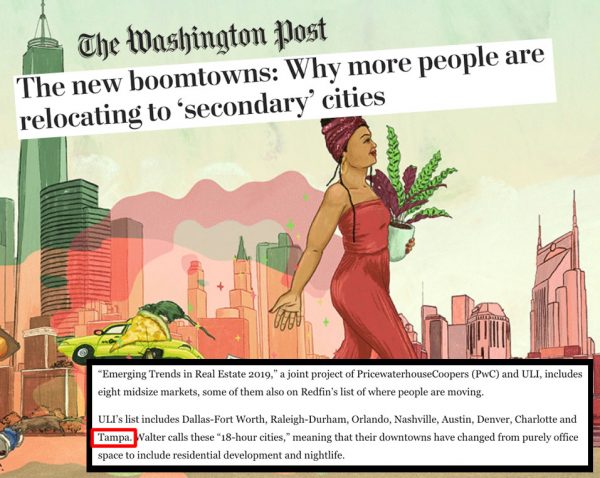
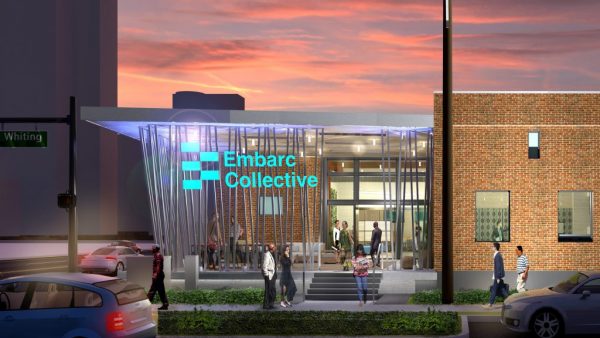


2 replies on “Tampa Bay’s tech “scenius” depends on us”
[…] Tampa Bay’s tech “scenius” depends on us: Scenius is a term that Brian Eno coined to describe the extreme creativity that groups, places, or “scenes” can generate. I recently wrote an article about it here. […]
[…] To find out more about scenius, check out this article: Tampa Bay’s tech “scenius” depends on us. […]